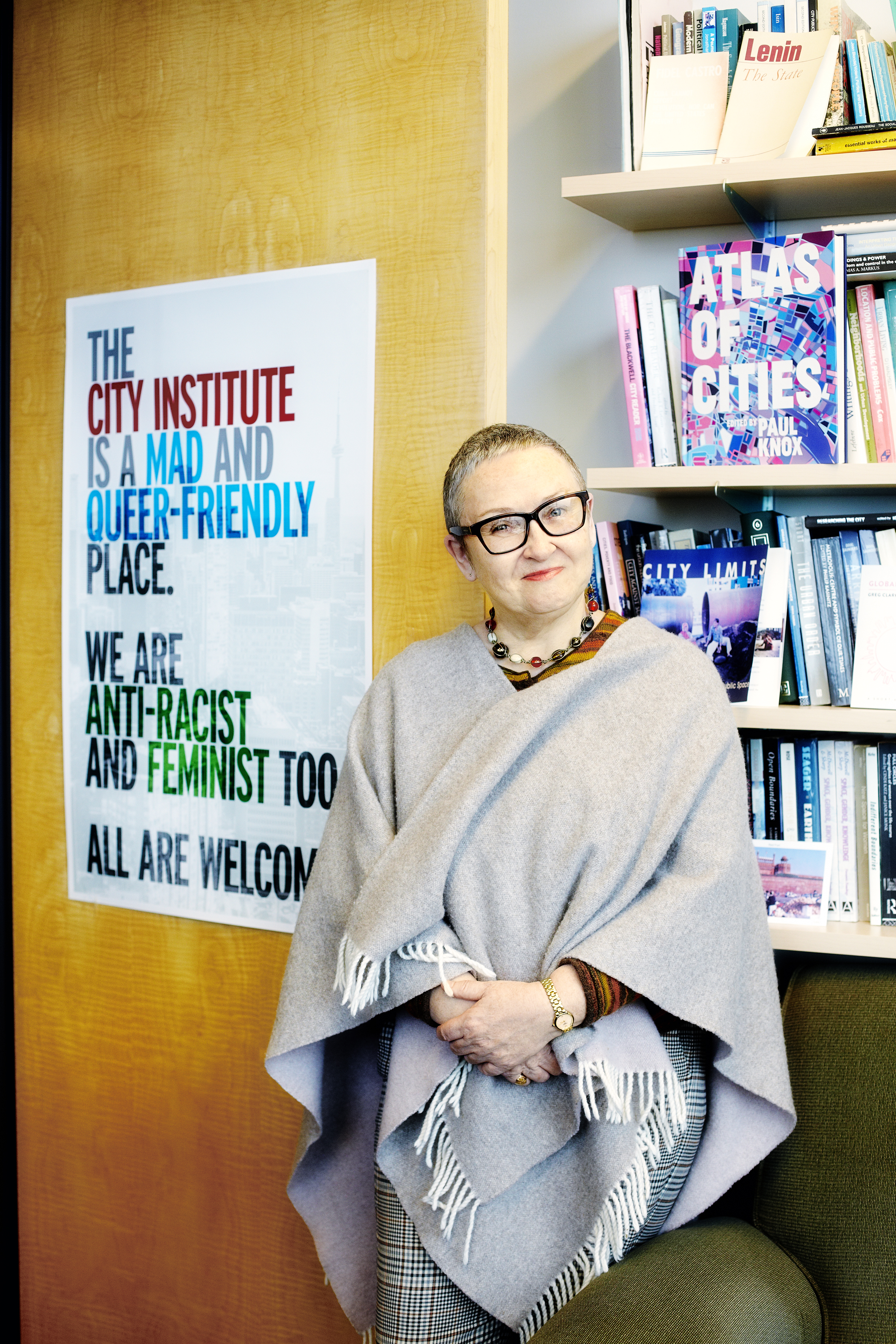Smart Cities
by Deirdre Kelly
photography by Sofie Kirk
When the residents of Jane and Finch learned that they were on a list of 31 communities scheduled to get a makeover as part of the contentious Toronto Strong Neighbourhoods Strategy 2020, they approached the City Institute at York University for some insight and guidance.
“They invited us to give them our input,” says City Institute director Linda Peake, a professor of urban studies in the Department of Social Sciences. “They wanted to tap into our expertise.”
Building on decades of York-led research into both local and global city issues, from urban politics and economies to housing, immigration and transportation, that expertise has made the City Institute one of Canada’s top-ranking urban research centres since its founding in 2012.
The focus is both local and global, honed by academics and students in collaboration with policy-makers, NGOs, government representatives and city inhabitants from around the world.
“We don’t just offer theories,” Peake says, “but solutions to real problems.”
For the Jane-Finch project, Peake spearheaded the formation of a task force that engaged residents in data-collecting missions to ensure that their low-income community receives its fair share of social and infrastructure upgrades.
She also helped lead the community in informed discussions with the municipality.

It’s not the first time the City Institute at York University has been at the forefront of urban affairs.
Other major collaborative research initiatives include Roger Keil’s six-year “Global Suburbanisms” venture.
A more recent project is “Urbanization, Gender and the Global South: A Transformative Knowledge Network,” a York-based international research study involving 40 feminist scholars in seven global cities.
A feminist geographer educated at the University of Reading in her native U.K., Peake is its principal investigator.
In this role, she will host an international conference on the topic at York University in the fall.
“Feminist Explorations of Urban Futures” will bring together leading feminist urban scholars as well as activists and policy-makers looking at gender and the urban experience when it convenes at the Keele Campus, Sept. 26 to 28.
Also this fall, the City Institute will begin working with academics from the Faculty of Liberal Arts & Professional Studies and the School of the Arts, Media, Performance & Design to broaden its knowledge base and reach to include those working in the urban arts and humanities.
“We cover the whole gamut: research, consultations, training workshops for faculty members as well as students,” Peake says. “We are a one-stop shop for urban research.” ■